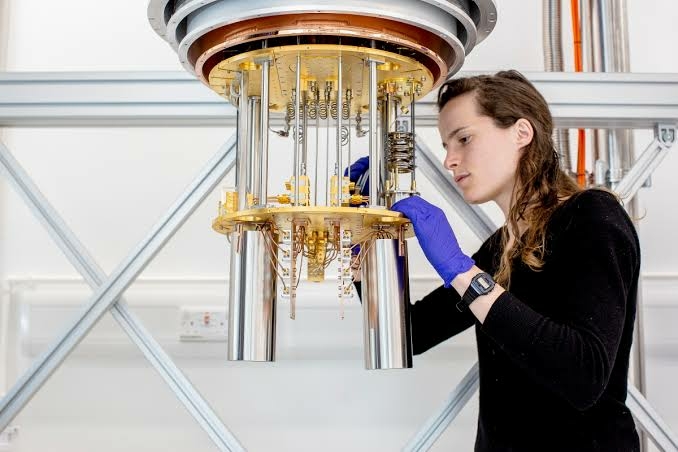Researchers from the University of Melbourne and the University of New South Wales (UNSW) have contributed to an international breakthrough that would allow for the cheap production of next-generation super-powerful quantum computers.
The publication in the journal of Advanced Materials on Thursday showed a new method of embedding single atoms into silicon wafers to create extremely precise arrays of subatomic particles or “qubits” used in quantum computing.
The current process of making quantum chips relied on randomly spraying atoms onto a wafer, which often leaves atoms unstable and prone to error.
David Jamieson, Professor of Physics at the University of Melbourne and lead author on the paper, told Xinhua that this had turned a haphazard process into one with a high degree of accuracy.
“Previous methods were exactly like rain falling on the chip. You get a different pattern of writing drops every time. It’s not reproducible.’’
“Our method allows us to count and direct the phosphorus atoms one-by-one, into the specific locations where we want them,’’ said Jamieson.
The team were able to adapt sensitive electronics to detect a click of an atom being embedded into the device, which allowed this one-by-one assembly of the device.
He said this method would allow for the creation of large-scale, affordable, quantum processors, with millions or perhaps billions of atoms positioned in a stable, long-lasting array.
“This is a big, big breakthrough. Our team has been working on phosphorus-based silicone processes for more than a decade.’’ he said
Quantum computers, unlike classical computers that operate on binary of 1 or 0, take advantage of the variety of ways qubits react to one another.
This essentially means quantum computers can run thousands or possibly millions of calculations simultaneously, rather than one at a time.
The new methodology has the potential to revolutionise the application of quantum computers in fields including finance, cryptography, and even the rapid development of future vaccines.
“Quantum supercomputers will allow us to deal with problems that cannot be solved with even the most powerful classical supercomputer,’’ said Jamieson.
He said the development of quantum computers would also likely open new windows into people’s understanding of molecular structures and current understandings around the laws of physics.

















Discussion about this post